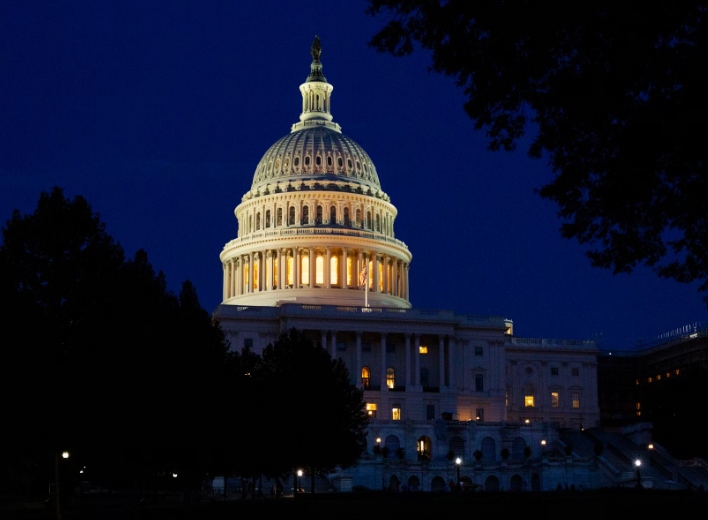As life slows down for most of us, the Christmas season is a great time for extra reading. Law & Liberty‘s staff, contributing editors, and senior writers offer some recommendations.
David Goldman
Paul A. Rahe, Sparta’s Sicilian Proxy War: Rahe’s account of the military campaign at Syracuse reflects the keen eye of a historian who has walked every part of the original battlefields not presently occupied by new high-rise construction. Ultimately, he leaves open the question of whether Athenian defeat was inevitable once Gylippus took command, or whether a more competent Athenian general than Nicias might have rescued the situation. But he leaves no doubt that Athens itself had been asking for defeat for decades, and that Sparta was well prepared to oblige.

Balázs Orbán, Hussar Cut: Orbán has written a transparent account of the thinking behind Hungary’s national revival. His book is also proof that philosophers—pace Leo Strauss—also can be politicians. Americans, with our vast power, can afford major blunders. Not so with Hungary, which has to walk a tightrope to survive. Hungary’s leaders have no such room for error. Clarity of vision is all the more important.
Read David Goldman’s review here.
Samuel Gregg

Lewis E. Lehrman, The Sum of It All: Autobiographies are often exercises in self-justification but that is definitely not the objective here. An American businessman and politician, Lehrman provides us with insights into some of the most consequential political, economic, and monetary policy battles of the late twentieth century, as well as thoughts on the ups and downs of the American conservative revolution of the 1980s from someone who played an integral role in its development.

Julian Jackson, France on Trial: The Case of Marshal Pétain: Jackson is one of the best historians of twentieth-century France and this 2022 study confirms that reputation. Apart from showing us how France did—and didn’t—come to terms with Vichy collaboration during World War II, Jackson illustrates how the trial of Philippe Pétain, France’s World War I hero, reflected the deep political fractures that marked France before 1945 and continue to do so today.
John G. Grove

Bruce P. Frohnen and Ted V. McAllister, Character in the American Experience: In this short tour of the American political tradition, Frohnen and McAllister emphasize neither ideology nor cultural uniformity as the key to American identity. Rather, they identify a certain character that emerges from a shared experience of cooperation and conflict.
Read Jesse Merriam’s review here.

Timothy Fuller, Michael Oakeshott on the Human Condition: This collection, published by Liberty Fund, brings together essays by one of the most important scholars of Oakeshott, and an insightful thinker in his own right. These challenging essays will be enlightening for readers of Oakeshott, or anyone thinking deeply about human experience in the modern world.
Read Elizabeth Corey’s review here.
Michael Lucchese

Graham James McAleer and Alexander Rosenthal-Pubul, The Wisdom of Our Ancestors: Conservative Humanism and the Western Tradition: This book is a true triumph of political theory. The authors seek to articulate the way conservatism can be more than a political position–it can also constitute a philosophical outlook. “The decline or renewal of the West depends,” McAleer and Rosenthal-Pubul conclude, “on whether a politics of conservative humanism is able to reclaim the wisdom of our ancestors and rejuvenate the religious, familial, and educational-intellectual traditions of our civilization.” Their book itself is an important step towards that revival.
Read James R. Stoner’s review here and McAleer and Rosenthal-Pubul’s response here.

Hans L. Eicholz, Harmonizing Sentiments: The Declaration of Independence and the Jeffersonian Idea of Self-Government: This book by one of Liberty Fund’s senior fellows was originally published in 2001, but was re-released in an expanded edition earlier this year. It remains one of the ablest articulations of the Jeffersonian persuasion I have read, especially as Eicholz reconstructs the American Founding’s “Old Whig” consensus about the nature of power and liberty.
Read Michael Lucchese’s review here.
Rachel Lu

Spencer Klavan, Light of the Mind, Light of the World: Based on the cover and synopsis, I was genuinely unsure whether I’d like this book or not, but I’m finding it to be something of a gem. The intellectual history is lively and interesting, but then opens the way to a provocative argument about science and religion that is worth engaging no matter what one thinks of science or, well, religion. Essentially, Klavan thinks that scientific discoveries, especially through the quantum revolution, have made scientific materialism untenable and opened the way instead to a more robust metaphysics that embraces the primacy of the mind. Scientists, he believes, are (often inadvertently) leading the world back towards the traditional faiths. It’s a delicious thesis, and he makes the case deftly. A book to inspire hope.
G. Patrick Lynch

Musa al-Gharbi, We Have Never Been Woke: This book is exquisitely timed, analytically rich, and theoretically challenging. Rejecting the idea that the recent intellectual crush of the nation’s elites with wokeism is either useful for its stated goals or even historically unique in the US, the book provides a powerful intellectual framework for thinking about the politics of the past decade and what the future might hold.
Read Jesse Smith’s review here.
Max Prowant

William I. Hitchcock, The Age of Eisenhower: Ike stands out as one of the more popular presidents in American history in part because he embodied a quiet pride and optimism in America not unlike Ronald Reagan. Hitchcock’s superb biography seeks to give a bit more justification to our instinct to respect Eisenhower. As Hitchcock shows, Eisenhower was a hugely consequential president: he cautiously laid the groundwork for civil rights; he navigated and set the tone for the Cold War, overseeing a massive expansion of our intelligence and national security apparatus while avoiding wars; and he set the country on a promising course for economic growth and fiscal responsibility. Hitchcock’s biography is an easy, inspiring read that is perfect for holiday leisure.

Robert Harris, Imperium (Cicero Trilogy): I’m not usually one for historical fiction, but Harris’s three-volume narrative of the life of Cicero is a guiltless pleasure. The novels do a fine and historically accurate job of conveying political life in the fall of the Roman Republic through the eyes of Cicero. They also provide a sort of commentary of the souls of great men. They are a moving portrait of flawed nobility. Readers can decide for themselves if the story has any parallels to our own fraught times.
Mark Pulliam

Victor Davis Hanson, The End of Everything: American conservatives tend to focus on their nation’s own brief history, as if time began on July 4, 1776. With a narrative spanning several millennia, The End of Everything by Victor Davis Hanson reminds us that genuine civilizational collapse—even extinction—is not only possible, but can occur suddenly and without forewarning, through destructive warfare. The specter of annihilation is a sobering lesson about the ephemeral nature of human societies, many of which met their demise despite misplaced confidence in their omnipotence. Hanson’s erudition is impressive even if his recitation of history is disconcerting. His grim Epilogue, “How the Unimaginable Became the Inevitable,” is not for the faint of heart.
Read Graham McAleer’s review here.
Adam Tomkins

Jonathan Swift, Gulliver’s Travels (ed. David Womersley): I have reached the age when re-reading gives at least as much pleasure as reading. I have also reached the age at which the classics appear to offer a great deal more than the new. Jonathan Swift wrote about that in his “Battle of the Books,” a struggle between the Ancients and the Moderns. The book which gave me the greatest pleasure this year was Swift’s Gulliver’s Travels, first published in 1726, and newly republished in paperback in 2022 by Cambridge University Press in a splendidly authoritative edition by David Womersley.





